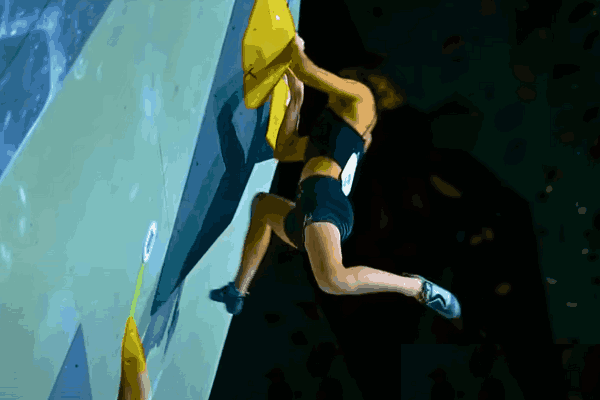CLIMBING SINCE TOKYO OLYMPICS
Olympic Sport Climbing has captured the world’s attention with its thrilling blend of speed, precision, and strength. Since its debut at the Tokyo 2021 Olympics, this relatively new event has evolved significantly, offering breathtaking spectacles and showcasing a wide range of climbing skills. At the Paris 2024 Olympics, the sport has been divided into distinct disciplines, each presenting unique challenges and opportunities for climbers.
What is Olympic Sport Climbing?
Olympic Sport Climbing consists of three main disciplines: Bouldering, Lead, and Speed.
In Bouldering, athletes tackle short, technical routes on a 4.5-meter wall without ropes, aiming to reach the top in the fewest attempts within a limited time.
Lead Climbing involves scaling a 15-meter wall with a rope, where climbers strive to reach the highest point possible in just six minutes.
Speed Climbing, the most exhilarating of the three, is a head-to-head race up a 15-meter wall, with athletes pushing themselves to hit the top in mere seconds.
The Evolution of Sport Climbing at the Olympics
When Sport Climbing was first introduced in Tokyo, it combined all three disciplines into a single event. This format received criticism for forcing athletes to compete across vastly different skills.
For Paris 2024, the format has been adjusted: Speed Climbing is now a standalone event, while Bouldering and Lead Climbing are combined.
This change allows climbers to focus on their specialties, showcasing their true strengths and enhancing the overall competition.
The Thrills of Speed Climbing
In the speed discipline of Olympic Sport Climbing, climbers compete one-on-one, racing to the top of a 15-meter wall.
The competition follows a bracket-style elimination format, where the slower climbers are knocked out until a winner emerges. This setup has intensified the drama and excitement, drawing more fans to the sport.
American teenager Sam Watson has emerged as a standout in this discipline, recently setting a new world record with a blistering time of 4.79 seconds.
His achievement highlights the raw athleticism and precision required for Speed Climbing, and his journey to the top has inspired many young climbers around the globe.
Key Athletes to Watch
As the 2024 Paris Olympics approach, several climbers have emerged as top contenders. For Team USA, Sam Watson and Natalia Grossman are leading the charge.
Watson, with his world record in Speed Climbing, is a favorite for gold, while Grossman, ranked No. 1 in women’s Bouldering, has also shown exceptional prowess in the combined Boulder and Lead events.
Internationally, Slovenia’s Janja Garnbret, the reigning women’s gold medalist, is a formidable force in Lead and Bouldering. Poland’s Aleksandra Miroslav and Japan’s Ai Mori are also strong competitors in their respective disciplines.
In men’s speed, Indonesia’s Rahmad Adi Mulyono and Veddriq Leonardo pose significant challenges to Watson’s dominance.
The Future of Olympic Sport Climbing
Olympic Sport Climbing is set to remain a highlight of the Summer Games, with its inclusion confirmed for the Los Angeles 2028 Olympics.
The sport’s blend of agility, strength, and speed appeals to younger audiences and promotes urban sports. As athletes continue to push the boundaries of what’s possible, the world will watch in awe, celebrating their incredible feats and the evolution of this dynamic sport.
In conclusion, Olympic Sport Climbing has revolutionized how we view climbing as a competitive sport. With its split disciplines and thrilling races, it has captivated audiences worldwide, highlighting the remarkable talents of climbers like Sam Watson and Natalia Grossman.
As the sport grows, its impact on the Olympics and the climbing community will undoubtedly deepen, inspiring future generations of athletes to reach new heights.
Watch here : What is Climbing as a Sport
Also Read : The Paris Olympic Closing Ceremony 2024




